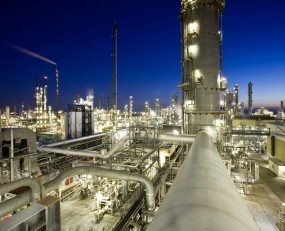
BASF is looking to further limit output from its German production site at Ludwigshafen due to problems with gas availability. Reports from the Reuters news agency quoted the chemical manufacturer as stating that it was “bracing for high and volatile gas prices” and that it would monitor the situation and “decide, depending on the situation, on any changes to the production value chain as appropriate”.
BASF has always been a major force in importing gas from Russia into western Europe. The low cost of Siberian gas was a key competitive advantage to the company’s large German sites. Now that this raw material flow appears to have stopped, long-term questions have to be asked about the trajectory of BASF’s production.
The pattern of BASF production is of great importance to the logistics market in Europe in general and Germany in particular. Ludwigshafen is one of the largest logistics complexes in Europe, comparable to the largest ports and major car assembly locations such as the Volkswagens plant at Wolfsburg. For Ludwigshafen to enter some form of structural change or decline would be very significant for rail and road freight demand in western Germany. It would also significantly impact barge traffic on the Rhine as BASF operates its own sizeable barge terminal and is a leading customer for river freight services.
It should be noted that as a company, BASF has aggressively diversified its production base over the past twenty years. Not only are facilities in Antwerp and the Gulf of Mexico major contributors to global production, but its presence in China is extensive. Although the Ludwigshafen site has remained a key location for BASF, the production geography of the company will probably become increasingly global, with the implication that Ludwigshafen will decline, possibly in absolute terms.
What is happening to BASF today will be paralleled throughout much of Germany and its neighbouring economies in the short-to-medium term, leading to a restructuring of logistics providers in the region.
Source: Transport Intelligence, 6th September 2022
Author: Thomas Cullen